Choosing the Best Epoxy Garage Floor Coating for Hot Climates: A Complete Guide
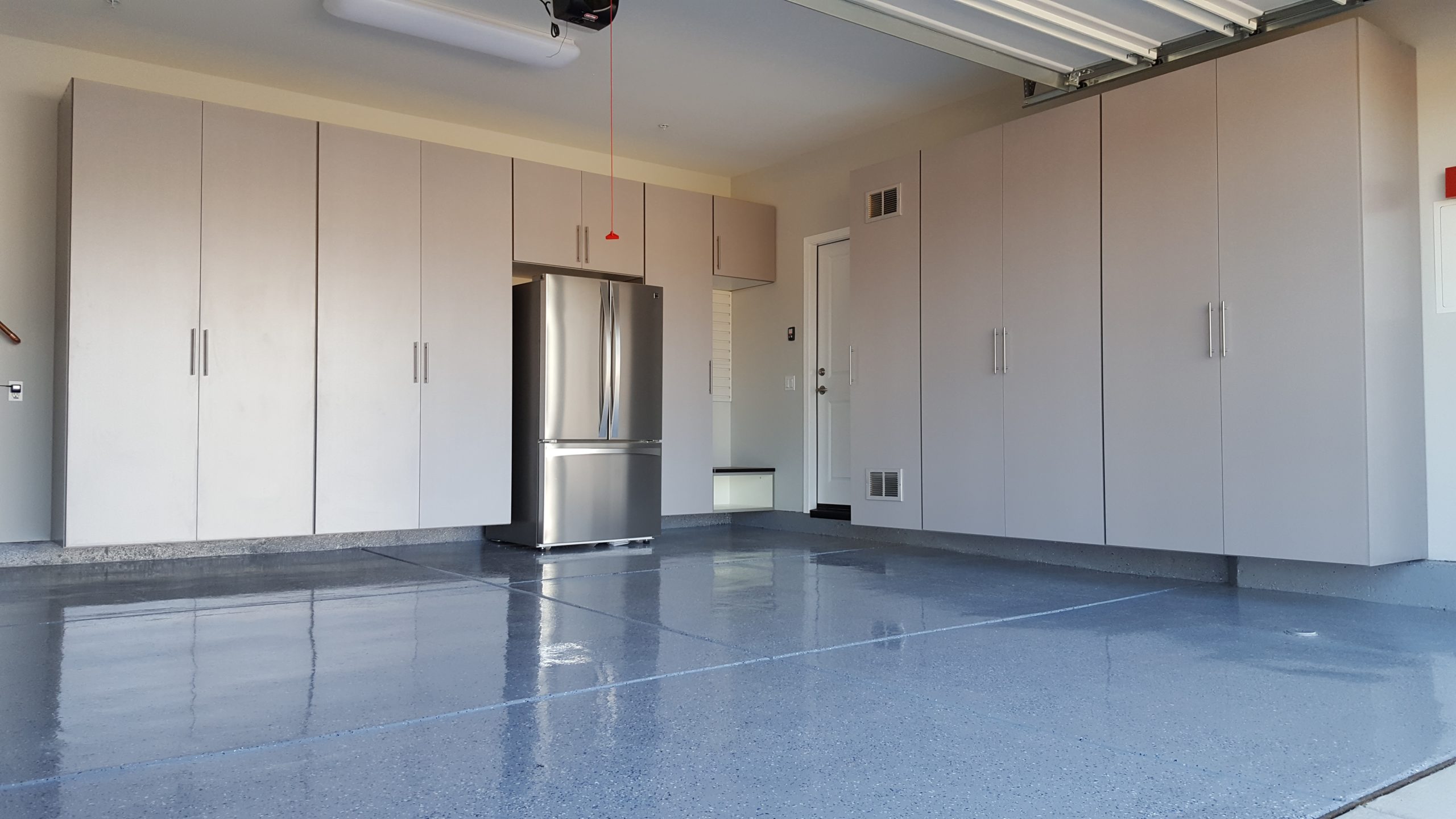
Epoxy garage floor coatings are renowned for their durability, versatility, and aesthetic appeal. However, when it comes to hot climates, the choice of epoxy flooring becomes even more crucial. High temperatures can affect the performance of floor coatings, so selecting the right type of epoxy is vital for ensuring a long-lasting, functional garage floor. This comprehensive guide explores how to choose the best epoxy garage floor coating for hot environments, discusses the options available, and offers expert tips for installation and maintenance.
Why Epoxy Flooring is Ideal for Hot Climates
Epoxy flooring is a top choice for garages because of its robust nature and versatility. In hot climates, where the temperature can often reach extreme levels, epoxy’s resistance to heat, UV rays, and wear makes it especially valuable. Unlike traditional paints or concrete flooring, epoxy creates a protective barrier that shields the underlying surface from environmental damage.
Epoxy coatings are known to provide superior protection against the damaging effects of heat. They prevent the floor from cracking, peeling, or fading due to the high temperatures typical in desert areas or regions with intense sunlight. Additionally, epoxy coatings create a smooth, reflective surface that can keep the garage cooler by reducing the amount of heat absorbed by the floor.
The Best Types of Epoxy Coatings for Hot Climates
Not all epoxy coatings are created equal, especially when considering how they will perform under extreme heat. The best epoxy flooring for hot climates should offer UV resistance, heat tolerance, and durability. Below are the most suitable epoxy coatings for garages in high-temperature areas:
- UV-Resistant Epoxy Coating
UV exposure is one of the primary concerns for garage floors in hot climates. Over time, sunlight can cause epoxy to yellow or degrade. UV-resistant epoxy coatings are specifically designed to withstand sunlight and maintain their color and gloss. These coatings are ideal for garages with significant exposure to the sun, offering long-term protection and preserving the aesthetic of the floor. - High-Temperature Resistant Epoxy
In extremely hot environments, the epoxy must also be capable of withstanding intense heat. High-temperature resistant epoxy coatings are formulated to endure constant exposure to high temperatures without losing their structural integrity. These types of epoxies typically have a higher heat resistance than standard formulations, making them perfect for garages that double as workshops or are subject to the heat of hot car engines. - Polyaspartic Epoxy Coating
Polyaspartic coatings are a form of epoxy that excels in both heat resistance and fast curing time. These coatings are ideal for hot climates because they can be applied in a wider range of temperatures and cure quickly even in warm environments. Polyaspartic coatings offer enhanced durability, resistance to chemicals, and better UV stability than traditional epoxy formulations, making them one of the best choices for garages in hot climates. - Epoxy with Flake or Quartz Additives
Flake and quartz-based epoxy coatings are not only visually appealing but also practical for hot climates. The textured surface provided by the flakes or quartz makes these coatings more durable, reducing the risk of scuff marks and abrasions. The added texture also helps with heat dissipation, preventing the surface from retaining excessive heat, which is an important factor for maintaining a cooler garage.
How Epoxy Flooring Performs in Hot Climates
Epoxy flooring, when chosen correctly, performs exceptionally well in hot environments. The resinous nature of epoxy ensures that the flooring remains intact even under high temperatures. One of the key benefits of epoxy in hot climates is its ability to resist thermal expansion and contraction, which can cause cracks or warping in other types of flooring.
Epoxy’s smooth, seamless surface is also resistant to dust, dirt, and moisture, which can be exacerbated by high humidity or extreme heat. This means that epoxy flooring helps maintain a cleaner, healthier garage environment. Additionally, the reflective surface of epoxy can actually reduce the need for artificial lighting, making your garage brighter and potentially reducing energy costs.
Maintaining Epoxy Garage Floors in Hot Environments
Maintaining epoxy floors in hot climates requires attention to a few key factors to ensure longevity and optimal performance. Here are some tips for keeping your epoxy garage floor in top condition:
- Regular Cleaning
Hot climates can bring additional dust and debris, which can wear down the finish of your epoxy coating over time. Regular sweeping and mopping will prevent dirt from building up and causing scratches or fading. It is important to use non-abrasive cleaning solutions that won’t compromise the integrity of the coating. - Avoid Direct Sunlight
While UV-resistant epoxy is formulated to withstand sunlight, excessive exposure to direct sunlight can still cause wear over time. Whenever possible, use UV-resistant window treatments or install awnings to reduce the direct impact of sunlight on your garage floor. This will extend the life of your coating. - Routine Inspections
Conducting regular inspections for cracks, chips, or fading is important to catch any early signs of damage before they become a bigger problem. If any areas of the floor show signs of deterioration, it’s best to address them promptly to prevent further damage. - Use Protective Mats or Rugs
In garages that are frequently exposed to high temperatures, placing mats or rugs in high-traffic areas can help protect the epoxy from constant abrasion. This is particularly important if the garage is used for mechanical work, as hot tools or car engines could leave marks or stains.
Does Heat Affect the Durability of Epoxy Garage Flooring?
Heat can affect the durability of certain types of flooring, but when it comes to epoxy, high-quality coatings designed for heat resistance hold up well. Epoxy garage floors are highly durable and will not warp, crack, or degrade from heat exposure like other flooring options (e.g., carpet or wood). However, standard epoxy formulations that are not specifically designed for heat may start to show signs of discoloration or peeling if exposed to excessive temperatures over an extended period.
To ensure maximum durability in hot climates, it’s crucial to select an epoxy formulation that is designed for high-heat resistance and UV stability. These features will help preserve the appearance and performance of your garage floor for many years.
What to Look for in Epoxy Installers for Hot Climates
Choosing the right installer is essential to ensure that your epoxy flooring performs optimally in hot climates. Look for experienced professionals who understand the unique challenges of working in high temperatures. Here are a few things to consider:
- Expertise in High-Temperature Applications
Ensure that the installer has experience with epoxy coatings specifically designed for hot climates. This knowledge will help them recommend the best products for your environment and handle the application process effectively. - Use of Quality Products
The quality of the epoxy products used will directly affect the performance and longevity of the floor. Work with installers who use high-quality, heat-resistant, and UV-protective epoxy coatings. - Proper Surface Preparation
The longevity of the epoxy coating depends heavily on the preparation of the garage floor. Professional installers will ensure that the surface is properly cleaned, repaired, and primed before applying the epoxy, ensuring a strong bond that will last for years. - Reputation and Reviews
Check for references and online reviews to gauge the quality of the installer’s work. A reputable company will have positive feedback and a proven track record in applying epoxy garage flooring in hot climates.
Frequently Asked Questions (FAQs)
How does epoxy flooring perform in hot climates?
Epoxy flooring performs exceptionally well in hot climates when the right type of epoxy is chosen. Heat-resistant and UV-protective epoxy coatings can withstand high temperatures and prevent damage, discoloration, and cracking.
What are the best types of epoxy coatings for garages in high temperatures?
UV-resistant epoxy, high-temperature resistant epoxy, polyaspartic coatings, and flake or quartz-based epoxy coatings are the best choices for hot climates due to their durability, heat tolerance, and UV stability.
How can I maintain an epoxy garage floor in a hot environment?
Maintain your epoxy garage floor by cleaning it regularly, protecting it from excessive sunlight, conducting routine inspections, and using protective mats in high-traffic areas.
Does heat affect the durability of epoxy garage flooring?
When using the right high-quality, heat-resistant epoxy, the durability is not significantly affected by heat. Epoxy flooring designed for hot climates remains intact and resistant to cracking, discoloration, and fading.
What should I look for in epoxy installers for garages in hot climates?
Choose installers who have expertise in high-temperature epoxy applications, use quality products, ensure proper surface preparation, and have a good reputation for providing reliable and durable installations.
Selecting the best epoxy garage floor coating for hot climates is essential for ensuring your garage floor remains durable, attractive, and functional. By choosing the right epoxy, maintaining it properly, and working with experienced installers, you can create a long-lasting and low-maintenance floor that thrives in even the hottest environments.
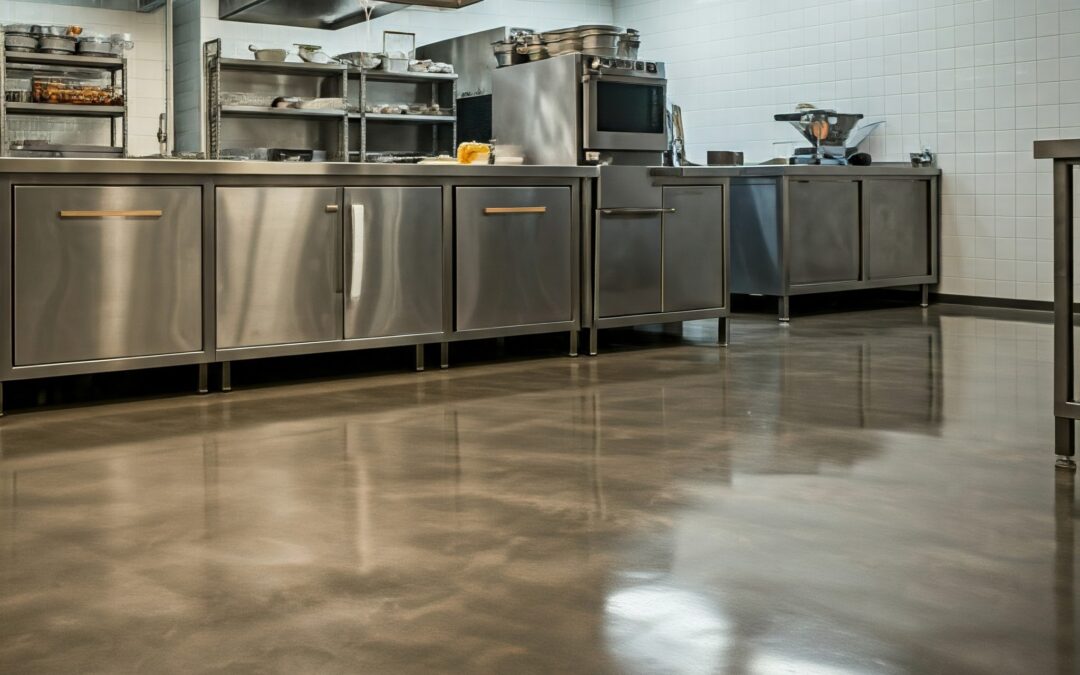
Transform Your Space with Commercial Concrete Polishing: Services and Benefits
Concrete polishing is a transformative solution for commercial, industrial, and warehouse spaces, offering durability, aesthetic appeal, and low maintenance. Whether you're revitalizing an old floor or finishing a new one, polished concrete provides a sleek and...
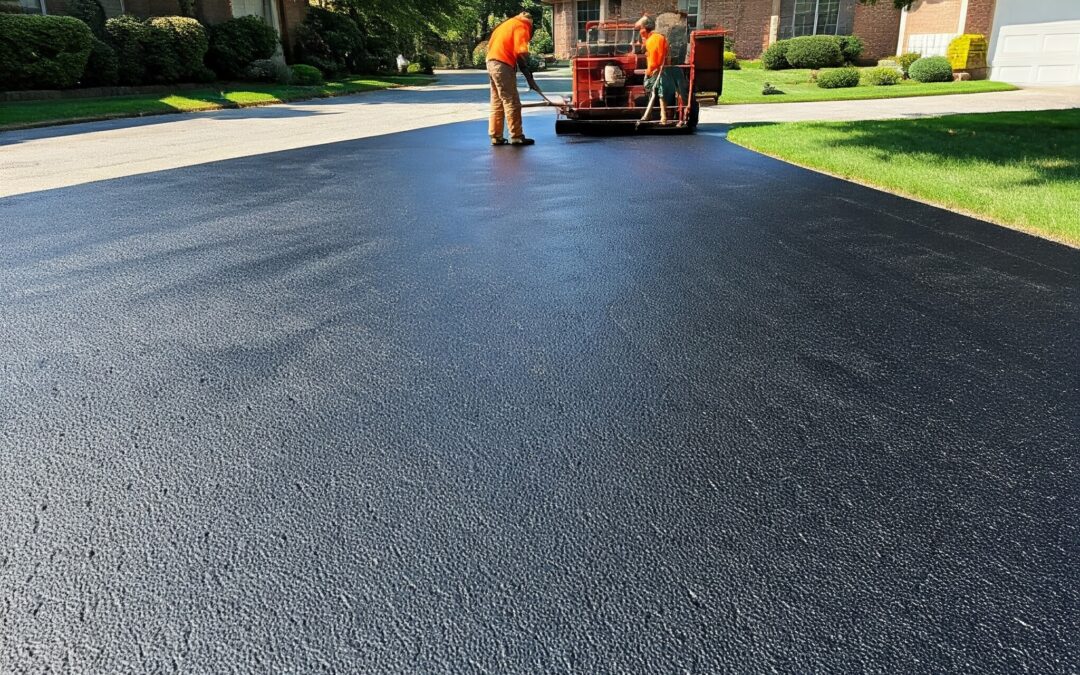
Seal Coating Driveways: Costs, Benefits, and Expert Solutions
Seal coating driveways is an essential maintenance step that protects surfaces, enhances durability, and boosts curb appeal. Whether you have asphalt or concrete, a well-applied seal coat creates a protective barrier against weather, UV rays, and wear, extending the...
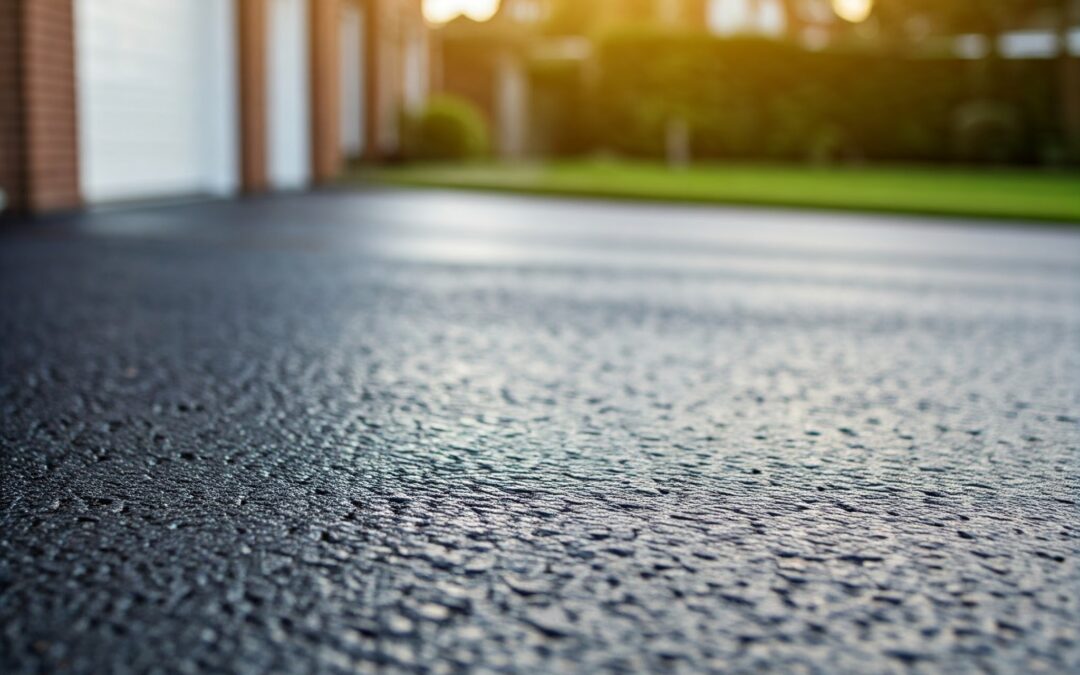
Driveway Coating Solutions: Costs, Ideas, and Best Options
Driveway coatings are essential for enhancing durability, improving aesthetics, and protecting your surface from harsh weather and wear. With various options available, choosing the right coating for your needs depends on factors such as cost, durability, and desired...
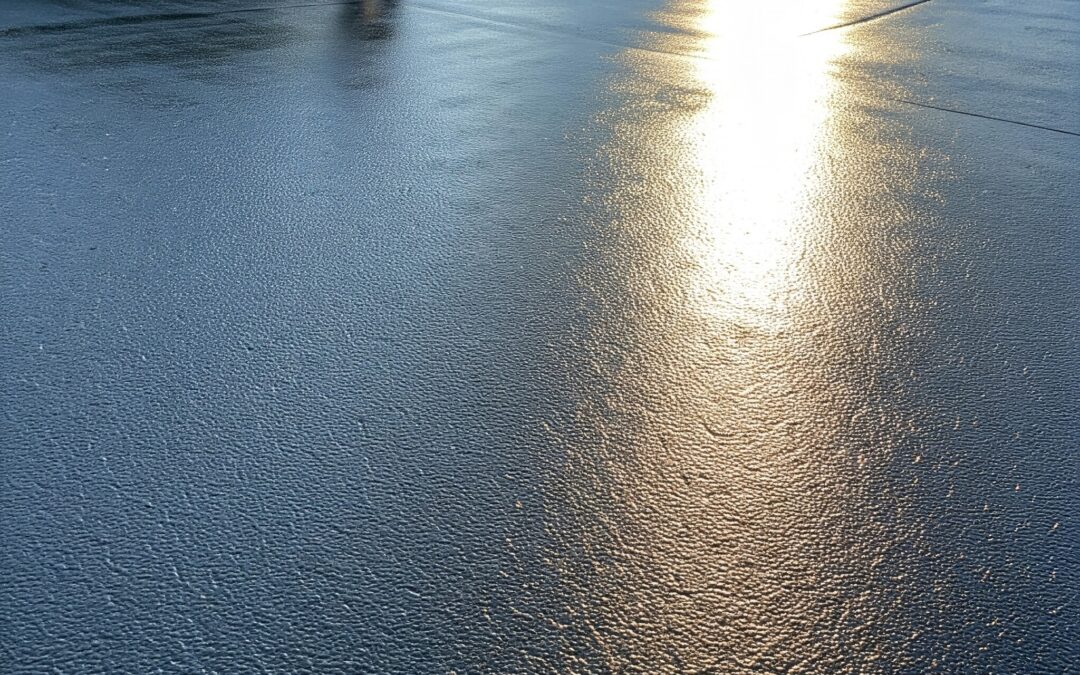
Seal Coating Driveways: Costs, Benefits, and Expert Tips
Seal coating is an essential maintenance step for asphalt driveways, offering a cost-effective way to protect and enhance their longevity. By applying a protective layer, seal coating shields driveways from wear and tear caused by weather, traffic, and UV rays. If...
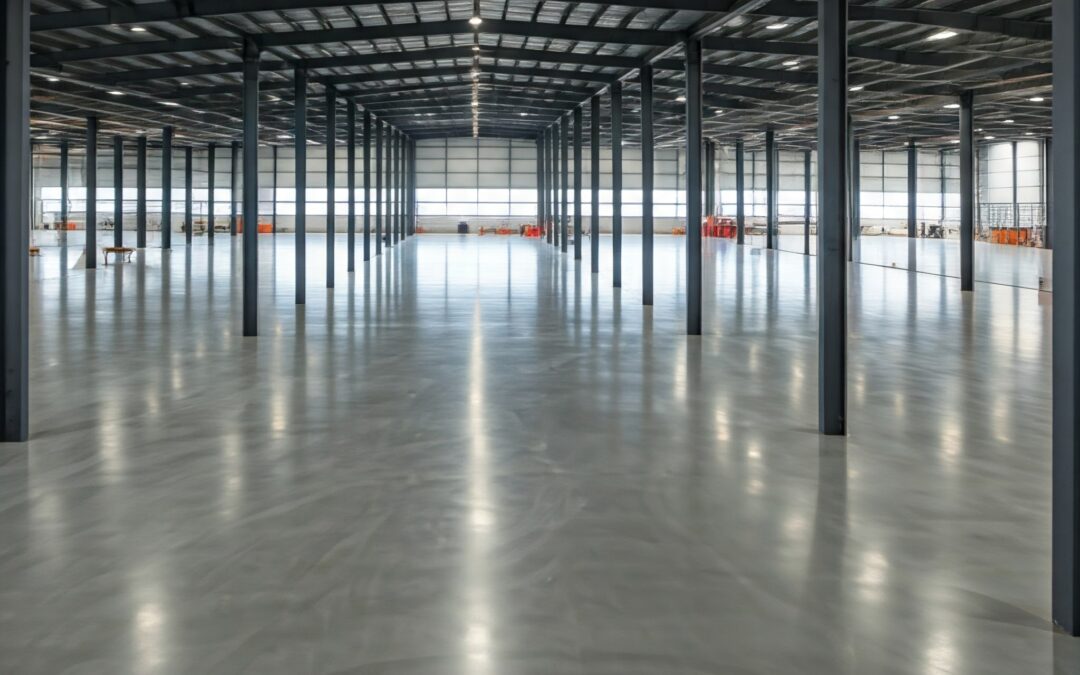
Industrial Epoxy Flooring Solutions: Durable, Safe, and Long-Lasting
Industrial epoxy flooring is a cornerstone of durable and safe workspaces, offering unmatched performance in high-demand environments. From warehouses to manufacturing plants, these floors provide resistance to wear, chemicals, and impact while maintaining a sleek and...
